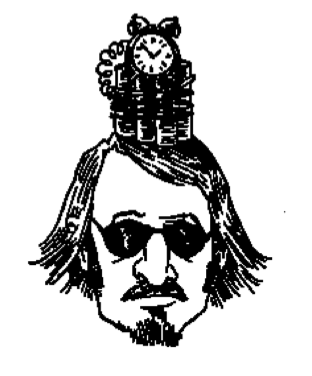If All Parents Are Bad Parents, What Can We Children Learn from the Children of the Revolution
Gregory Gipson
Joan Didion, in a 1992 essay entitled “Eyes on the Prize,” quotes political scientist Walter Dean Burnham as she describes the shift in Democratic Party campaign strategies during the Clinton years: “The Republicans,” Burnham says, “are perfectly happy to declare class struggle all the time. They are always waging a one-sided class war against the constituency the Democrats nominally represent. In this sense, the Republicans are the only real political party in the United States. They stand for ideology and interest, not compromise.”
It was not always so. Thirty-five years ago this month—on March 6, 1970—a group from the furthest left point on the political spectrum, a group that was also violently against compromise and vividly ideological, accidentally blew up the New York City townhouse in which some of its members were building a bomb. The bomb contained nails, and was intended for detonation at an ROTC event. It was built to kill people, and it did: three people died, gruesomely. The blast destroyed the house on West Eleventh Street and sent the surviving plotters scuttling for safety. Not to be deterred, this small cadre of fanatics and demagogues, known as Weatherman, retained big plans for the Amerika it despised.1 “The goal,” they declared, “is the destruction of US imperialism and the achievement of a classless world…. For socialism to be defined in national terms within so extreme and historical an oppressor nation as this is only imperialist national chauvinism on the part of the ‘movement.’” After the West Eleventh Street mishap, the Weatherman became the Weather Underground, a covert organization that spawned countless other would-be revolutionary cadres—the Symbionese Liberation Army (SLA), the Black Liberation Army, the May 19 Communist Organization—each of which engaged in bombings, kidnappings, and other violent activities, then vanished from the nostalgic—that is, mainstream—narrative of the free-love sixties.
Recently, these underground revolutionaries have been making a comeback. In 2003, three books (two novels and a work of nonfiction) starred members of these infamous groups. Neil Gordon’s The Company You Keep and Susan Choi’s American Woman (nominated for the Pulitzer Prize), both novels, imagine the activities and aftermaths of, respectively, the Weather Underground and the SLA (famous for kidnapping and converting media-mogul heiress Patricia Hearst in 1974). Susan Braudy’s exhaustively researched Family Circle: The Boudins and the Aristocracy of the Left examined the familial roots of the increasingly wayward activism practiced by her college classmate Kathy Boudin—a West Eleventh Street escapee, a domestic terrorist, and, eventually, a convicted murderer. Also in 2003, the Academy of Motion Picture Arts and Sciences nominated The Weather Underground, directed by Sam Green and Bill Siegel, for an Oscar in the Best...
You have reached your article limit
Sign up for a digital subscription and continue reading all new issues, plus our entire archives, for just $1.50/month.
Already a subscriber? Sign in





